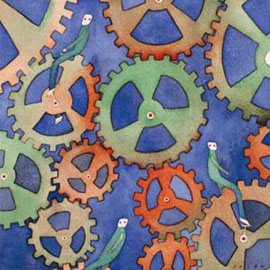UPDATED 2018-06-27
WHEN & WHERE?
- Date, time, and location t.b.a. mid-July
REVISION GUIDE: USEFUL DOCUMENTS
- description & syllabus
- schedule
- revision guides for the final exam and for all the chapter tests: the final exam is on everything we have done in this course all term (plus the foundations that precede FREN 102, ex. FREN 101 or equivalent, as language-learning is cumulative)
WHAT YOU SHOULD BRING WITH YOU
- your UBC student ID
- a pen (I would recommend bringing three new ones)
- water, other drinks, snacks, if you wish
- one index card of notes, using just one or both sides*
- a spare layer of clothing in case you get cold during the exam (cardigan, hat, etc.)
- basics such as keys, outerwear, umbrella,…
* NB: this is an exam preparation tip / suggestion and these are NOT cue-cards or notes for the exam. No notes or books or materials are allowed in the exam itself (as should be clear from the exam format, practice exams, etc.). If trying to do last-minute revision, doing so from one pre-prepared index card is better (and writing that index card is very good preparation in its own right) than bringing all your notes, textbook, etc. with you.
WHAT YOU DO NOT NEED TO BRING WITH YOU
- textbooks, other notes, revision materials
- cellphones, smartphones, tablets, laptops, headphones, and other electronic devices
 GUIDANCE FOR REVISING FOR THE FINAL EXAMINATION
GUIDANCE FOR REVISING FOR THE FINAL EXAMINATION
UBC resources for stress-relief for students
- Stress: http://students.ubc.ca/livewell/topics/stress
- Anxiety: http://students.ubc.ca/livewell/topics/anxiety
- Sleep: http://students.ubc.ca/livewell/topics/sleep (I cannot over-emphasise the importance of sleep, for general health as well as for brains & exams; UBC and research colleagues in psychology and neuroscience do too. It’s not just me.)
- Nutrition: http://students.ubc.ca/livewell/topics/nutrition-and-food
- Physical activity and recreation: http://students.ubc.ca/livewell/topics/physical-activity-and-recreation
Including events on campus:
At the FREN 102 course site:
- https://blogs.ubc.ca/fren102/2014/04/08/the-final-examination/
- https://blogs.ubc.ca/fren102/2014/06/09/revision-guides/

This is what I usually tell students, in all classes, for exam preparation:
1. Sleep. At least 8 hours/night, every night. Sleep plays an essential role in the consolidation of memory.
2. Electronic visual blackout before sleep. At least an hour with no electronic light-sources (i.e. screens). This should help you to sleep. Listening to music, however: yes. Actively encouraged: especially if it’s in French! Music should also help you be happier and calmer.
3. Eat well and regularly.
4. Exercise. Make sure you’ve at least stretched for 5 minutes every hour. Including during exams. This keeps your core muscles working and your airways open; especially around your upper torso and shoulders. We will remind students of the passing of time during the exam, and one reason for that is to give us a reason to remind students to stretch out a bit.
5. Cramming at the last minute is not advised, for three reasons:
(a) Most of your work is done during term, in the virtuous cycle of teaching-and-learning. This is reinforced by FREN102′s online exercises. There is little material that you can cram at the last minute, without taking drugs of a sort that also risk messing up memory. French is unlike academic areas that depend on learning facts by heart, by rote, in a mechanical robotic way.
(b) French is like most other academic subjects in that, at a university level, in order to do well you will/should also need to show evidence of reflexion, of independent thought. This entails active new thinking during the exam.
(c) French, like any language, requires regular continuous work and practice. The way it is learned is more like music than is is like other Arts/Humanities subjects. An analogy: if you had a piano recital, you wouldn’t do nothing at all and then cram 18 hours’ practice the day before.
6. Some of the best revision you can do before tests and exams is testing yourself. One of the best tests of your knowledge is your capability to explain something to another person. As I always tell me own students / section around week 3 of class: it is worth getting into study-pairs or groups (but keep them small: 2-4 people) as soon as possible, and definitely well before the middle of the term. In my experience, many people do this anyway. Meet regularly over coffee/tea (and maybe cake, du gâteau). Quiz each other. This can be done at any time, and continues to be beneficial in the week before a final exam
7. Make sure you know where your exam is taking place, how to get to it, and how long that will take.
8. Make sure you know where the nearest bathroom is. Pay a visit before the exam.
9. Arrive at your exam early (at least 20 minutes before the start), preferably including at least 10 minutes’ walking in your itinerary to get some oxygen into your brain (but not running).
10. Don’t bring anything with you that you don’t need for the exam itself. Especially no notes, revision guides, textbook, etc. They rarely help. You’re better off spending those last few minutes before the exam doing deep breathing. Some people meditate. Do whatever works for you, something calm that involves breathing slowly and deeply, good for your heart-rate as well as your blood (and brain) oxygen levels.
BONUS: some useful practical general tips and advice from Timothy Gowers (Mathematics, University of Cambridge) > scroll down to “General study advice”

UBC RULES ABOUT EXAMINATIONS
Your are expected to know these: it is one of your contractual responsibilities and obligations when you registered as a UBC student.
- student declaration and responsibilities
- academic honesty and standards
- student conduct and discipline
- academic misconduct: cheating, plagiarism, etc.
- student conduct during examinations
- exam policies and accommodations
- UBC grading practices
- UBC Policies and Regulations: Academic Concession
SEE ALSO
- THE RULES (O’Brien)

